
Bob Dylan performing in Rotterdam in 1978. Pic: Chris Hakkens/Wikimedia Commons
Passionate fan, James Sullivan considers the poetic lyricism and music by one of the most influential songwriters of all time
On 24 May, Bob Dylan turned 77. For six decades, through 36 studio albums, a dozen live albums, countless bootlegs, box sets and compilations, Bob Dylan, born Robert Zimmerman, has been one of the most influential songwriters and performers ever to walk this earth. And love him or hate him, you will have an opinion of him which is perhaps a rarity in this ever-increasing digital age of the one-hit wonder; the here today, gone tomorrow throwaway. A rock ‘n’ roller, folkie, poor country boy, Greenwich Village coffeehouse troubadour, poet, campaigner for the down trodden, Nobel Prize winner, cowboy, and original New York hipster, Dylan has charmed and frustrated audiences the world over.
I began thinking I’d pick several of the best cover versions of his songs – The Byrds chiming out Mr Tambourine Man; Hendrix’s wah soloing on All Along the Watch Tower; Sandy Denny’s passionate vocal performance on Fairport Convention’s take on the previously obscure, Percy’s Song; perhaps I’ll Keep It With Mine from Nico’s debut album; Guns N’ Roses’ kitchen sink treatment of Knocking on Heaven’s Door…
No, I scrapped that idea. Although it would speak to the power of Dylan’s songwriting, it would take too much focus away from the man behind the songs, the poems. How about focusing on the man then and how he’s changed over time from Guthrie-obsessed self-mythologizing protester; through the wild mercury sounds of his electric rock; to recuperating countrynik; born again Christian; writer’s block defeating homecoming king…
No, another false start. The only way to truly appreciate Dylan’s music and superior songwriting is to listen to it and hear the lyrics, the poetry. Dylan is after all a poet with utter clear-sightedness. A visionary then. Renamed after Dylan Thomas, revered by his peers, loved by Ginsberg. So let’s consider some of his poetry and just marvel at its strength and continuing power to illuminate the ages.
A Hard Rain’s A-Gonna Fall
(from The Freewheelin’ Bob Dylan, released 1963)
I’m a-going back out ‘fore the rain starts a-fallin’,
I’ll walk to the depths of the deepest black forest,
Where people are many and their hands are all empty,
Where the pellets of poison are flooding their waters,
Where the home in the valley meets the damp dirty prison,
Where the executioner’s face is always well hidden…
This was the song where Beat poet, Allen Ginsberg, first turned on to Dylan. In Martin Scorsese’s brilliant documentary, No Direction Home, Ginsberg spoke about first returning to the US following his spiritual trip to India, and being played a Dylan record for the first time – then unknown not only to Ginsberg, but to the vast majority of America’s baby boomers and music lovers – and weeping, explaining that it seemed that the torch had been passed to another generation. Ginsberg went on to explain the famous saying amongst Tibetan Buddhists, that if the student is not better than the teacher, then the teacher is a failure, and of how on first hearing this song, being knocked out by the eloquence of the words, which at times were almost biblical prophecy.
This song, from only his second album which contained many other brilliant originals (Blowing In The Wind, Masters Of War, Don’t Think Twice, It’s Alright etc.), showed the frenetic pace at which Dylan was adapting. It was also the album that got The Beatles interested, and led to that famous 1964 meeting at the Fab Four’s suite in the Hotel Delmonico on Park Avenue, NYC where Dylan allegedly introduced them to marijuana…and the rest is history!!
My Back Pages
(from Another Side of Bob Dylan, released 1964)
Half-wracked prejudice leaped forth,
‘Rip down all hate’, I screamed,
Lies that life is black and white,
Spoke from my skull. I dreamed,
Romantic facts of musketeers,
Foundationed deep, somehow.
Ah, but I was so much older then,
I’m younger than that now.
After three albums of politicking, Dylan, possibly inspired by the success he saw peers like The Beatles gaining, had his first big noticeable change, becoming a more loose, allusive and hip individual, and perhaps the poet was truly born. This transition is clearly commemorated in this song, with the line ‘…I was so much older then, I’m younger than that now.’. This is Dylan embracing the future and its infinite possibilities, having realised that his protesting past had limited and confined him. Time to flex.
Sad Eyed Lady Of The Lowlands
(from Blonde On Blonde, released 1966)
With your mercury mouth in the missionary times,
And your eyes like smoke and your prayers like rhymes,
And your silver cross, and your voice like chimes,
Oh, who among them do you think could bury you?
Al Kooper, one of Dylan’s best known sidemen, and who played on Blonde On Blonde, said of this song, ‘This is what 4am sounds like.’ Dylan once said himself that this was the best song he’d ever written. 11-and-a-half minutes will never be so enjoyable; you simply don’t want the song to end. This, one of the most gorgeous and heartfelt love songs in the canon, is about Dylan’s then wife, Sara Lowndes; a love letter to her. Full to bursting with clever imagery and wordplay, there are few artists that would have the courage to write such a song, let alone the ability, with its romance overspilling and the words perfectly accompanied by the likes of Kooper, future Stray Gator, Kenny Buttrey, and Charlie McCoy as they float up and up to hold the listener in spellbinding transcendence.
Million Dollar Bash
(from The Basement Tapes, released 1975)
Well, I’m hittin’ it too hard
My stones won’t take
I get up in the mornin’
But it’s too early to wake
First it’s hello, goodbye
Then push and then crash
But we’re all gonna make it
At that million dollar bash.
And then the motorcycle crash. With an ever-intensifying workload and having created the myth in the image of the big haired rock priest turning on beatniks, Berkeley and disaffected kids the world over, the inevitable happened. On 29 June 1966 when riding his beloved Triumph 500, his rear wheel locked throwing him off the bike, causing head and neck lacerations and damaging several vertebrae. Dylan retired to his bed in Woodstock and, with his pals – soon reborn as The Band – and away from the prying eyes of mass hysteria, battened down the hatches and wrote and jammed more freely than ever before (or since) and came up with the songs that would later be reborn in John Wesley Harding, Nashville Skyline, The Band’s own Music From Big Pink, and the legendary Basement Tapes – not officially released until some eight years later, but whose bootlegs – including the widely circulated Great White Wonder – created a whole new genre which wasn’t lost on original hippies Jerry Garcia and David Crosby to name a couple.
This is Dylan nursing a hangover cured only by the comfort of his close pals and that first hair of the dog. Where wraparound porch replaces wraparound shades and Dylan breathes again, happy to be alive. His pen – tapping into centuries of America – writes with hilarity and puzzlement, evoking friends and rivals throughout the ages into what is perhaps his most underrated collection of songs.
Forever Young
(from Planet Waves, released 1974)
May God bless and keep you always,
May your wishes all come true,
May you always do for others,
And let others do for you,
May you build a ladder to the stars,
And climb on every rung,
May you stay forever young,
Forever young, forever young,
May you stay forever young.
Still deeply in love with his sad-eyed lady of the lowlands, Sara Lowndes, and with five children, in Forever Young Dylan deals with the innate, the ancient: every parent’s wish for their child’s immortality and success. Avoiding sentimentality, rather the song encourages its subject (possibly his youngest son, and later musical artist in his own right, Jakob) to find their own truth. A selfless anthem to leave behind the ages. Perfection.
One More Cup Of Coffee (Valley Below)
(from Desire, released 1976)
Your sister sees the future,
Like your mama and yourself,
You’ve never learned to read or write,
There’s no books upon your shelf,
And your pleasure knows no limits,
Your voice is like a meadowlark,
But your heart is like an ocean,
Mysterious and dark.
This paints the picture quite beautifully of a rogue gypsy couple – perhaps outlaws – in the kind of magical realism that would impress the great author, Gabriel García Márquez. It’s brooding, smoky and mysterious; otherworldly even, as Hades meets Mexican border town and the song’s author and his lover revisit their pasts over, ‘One more cup of coffee,’ before perhaps one final shootout in an escape or release to, ‘The valley below.’
Blind Willie McTell
(from The Bootleg Series Volumes 1-3, released 1991)
See them big plantations burning,
Hear the cracking of the whips,
Smell that sweet magnolia blooming,
See the ghosts of slavery ships,
I can hear them tribes a-moaning,
Hear that undertaker’s bell,
Nobody can sing the blues,
Like Blind Willie McTell.
This was originally recorded for 1983’s Infidels – Dylan having emerged out the other side of his often questionable sentiment born-again period, and trilogy of albums: Slow Train Coming, Saved and Shot of Love – but he ditched it in favour of a clutch of inferior songs, and this masterpiece, possibly his last truly world class song, was condemned to the darkness until the early 90s’ exceptional Bootleg Series. This is Dylan ruminating from a hotel room in New Orleans, lifting the veil of corruptibility of that oft forgotten dark period in the Deep South. The plantations burning, the chain gangs, the cracking whips and ghosts of slavery ships. And he buries the rag deep in its face (to recall lyrics from 20 years earlier in The Lonesome Death Of Hattie Carroll) for now is the time for its tears! All the while, Dylan pays homage to one of his idols, the 1920s Delta bluesman of the song’s title, who he believes can sing the blues better than anyone.
And so flash forward to now, and with him having in 2016 won the Nobel Prize in literature for, ‘Having created new poetic expressions within the great American song tradition,’ and few of us mere mortals can begrudge Bob Dylan nee Robert Zimmerman the immortality that awaits him within his infinite work, as our descendants in many generations to come continue to pore over his songs, his words, his poetry.
Words: James Sullivan



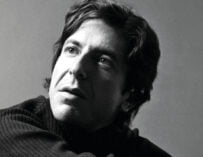
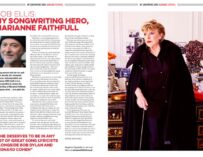
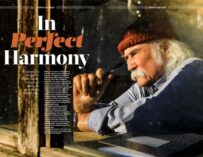



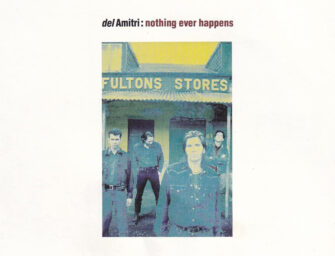

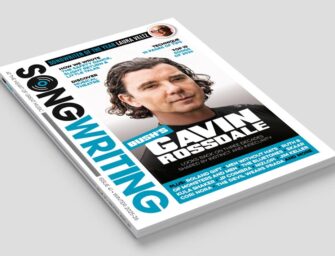























Related Articles